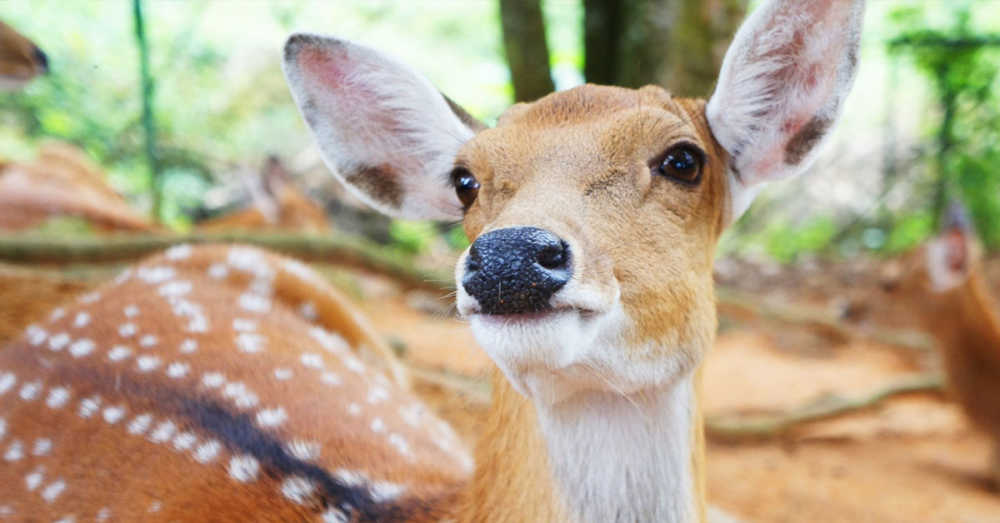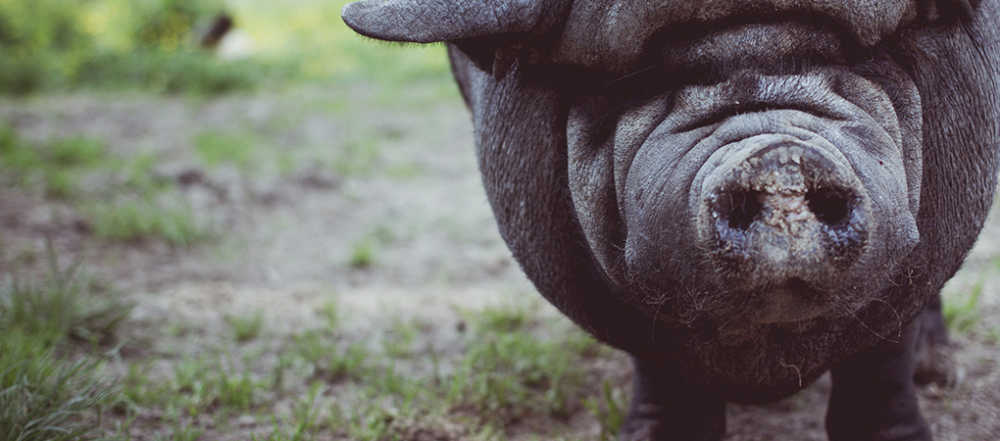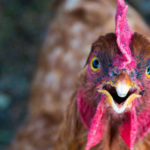We run our website the way we wished the whole internet worked: we provide high quality original content with no ads. We are funded solely by your direct support. Please consider supporting this project.

What “Man Gave Names to All the Animals” REALLY Means?
Article by Dan Kent
“So the man named all the animals, the birds of the air, and the living creatures of the field.” Genesis 2:20
In the fog of our over-Googled, ‘Hey Siri,’ information-obsessed minds I believe we may be looking upon the story of Adam naming the animals with dull eyes. We watch Adam mechanically identify the genus and species of each animal. “This one shall be rabbit,” he says, and marks the appropriate spot on his clipboard—as if, in God’s eternal garden, categorization is so very important.
It’s not.
What’s important to God is relationship. Community. Connection between individuals. In the bible, naming was a sacred act. It meant something. When Jacob wrestled God (and won!), God renamed him Israel (meaning, roughly, “wrestles with God”). The name captured something unique about this unique individual.
So maybe, when Adam was naming the animals, he wasn’t establishing a taxonomical structure. Maybe he was connecting with friends. He wasn’t saying “you shall be called and ‘Ectotherm Testudine,’ (‘turtle’)” he was saying, “I’ll call you Norbert.” He wasn’t saying “this is a duck,” he was saying, “hey Maude!”
This makes so much more sense of a God who loves each animal. A God who cares about each sparrow (Matthew 10:29), and saved a city from destruction because of some cows (Jonah 4:11). A God who identifies as a lion (Revelation 5:5), a lamb (John 1:29), and even as a mother hen (Matthew 23:37).
Animals are important. Each one.
To the people of our world, though, animals are not so important. Oh, sure, dogs are. And maybe cats. And we all love pictures of cute baby animals. But we also live in a perverted place where our own adaptation diminishes and humiliates animals. For instance, we’re each wickedly dependent on cars, which slaughter countless animals every day. Just look at the carnage on the sides of our freeways. Drive through Wisconsin in the fall. You’ll find a decimated deer carcass every couple miles or so.
We become desensitized. We shrug our shoulders and move on.
We’re stuck with cars, at this point. But we don’t have to let our hearts harden. One little thing my wife and I do to push back against apathy: we name each roadkill we see. We’ll be driving along and one of us will break the silence with a “Karen,” or a “Walter,” or a “Quincy.” Then we’ll take a brief moment, an impromptu ceremony, to appreciate each one. It’s silly, for sure, and it does nothing to help the victims. But it does guard our hearts (Proverbs 4:23). It keeps us in an appreciative spirit, keeps us oriented to the actual value of things in a world that so ruthlessly disregards the precious and exults the meaningless. We’re dependent on cars. But we don’t have to let this fact harden our hearts.
Naming the animals is simply one tactic to help, one little way to push back against the deluge of messages that pressure us to think “they’re just animals,” and dupe us into lifestyles that are horrendously violent (even if that violence is conveniently hidden from our dumbed-down eyes, as in factory farming). The point is, we can make choices to maintain a sensitive heart. At the very least, we can do as Adam did: we can name the animals.

Category: General, Guest Contributor
Tags: Animals, Creation
Topics: Creation Care
Guest Contributor:

Daniel Kent has authored several books, including Confident Humility: Becoming Your Full Self Without Becoming Full of Yourself, and the series The Training of KX12. He also produces and hosts ReKnew’s Podcast Greg Boyd: Apologies & Explanations and serves as editor-in-chief here at ReKnew.org.
Related Reading

A Non-Violent Creation
A biblical teaching that we often overlook regarding the centrality of non-violence concerns God’s original vision of creation. We have grown so accustomed to the violence we experience as a part of nature that we don’t even question whether it is supposed to be the way it is. However when we see God’s vision for…

The Witness of Graffiti (Rocks Crying Out)
Ibrahim Iujaz via Compfight On this eve of Easter, we wanted to share something that fit the mood of the time between the crucifixion and the resurrection. D.L. Mayfield wrote this striking piece on the longing for the Kingdom of God in the midst of overwhelming brokenness. We thought it was the perfect reflection for…

Why the Rapture is a Bad Idea
Is the Rapture really what you think it is? Most Christians believe that God will take his followers up to heaven before the really bad stuff starts on earth, but is this what the bible says? Is this view consistent with the loving God that Jesus shows us in the New Testament? View the full…

Why Are You Vegetarian?
In this episode Greg talks about non-violence in his diet and in his treatment of household insects. Spiders=are worth saving. Mosquitos=apparently not. http://traffic.libsyn.com/askgregboyd/Episode_0031.mp3

Why Vegetarianism Instead of Veganism?
Greg talks about vegetarianism and veganism. http://traffic.libsyn.com/askgregboyd/Episode_0054.mp3
